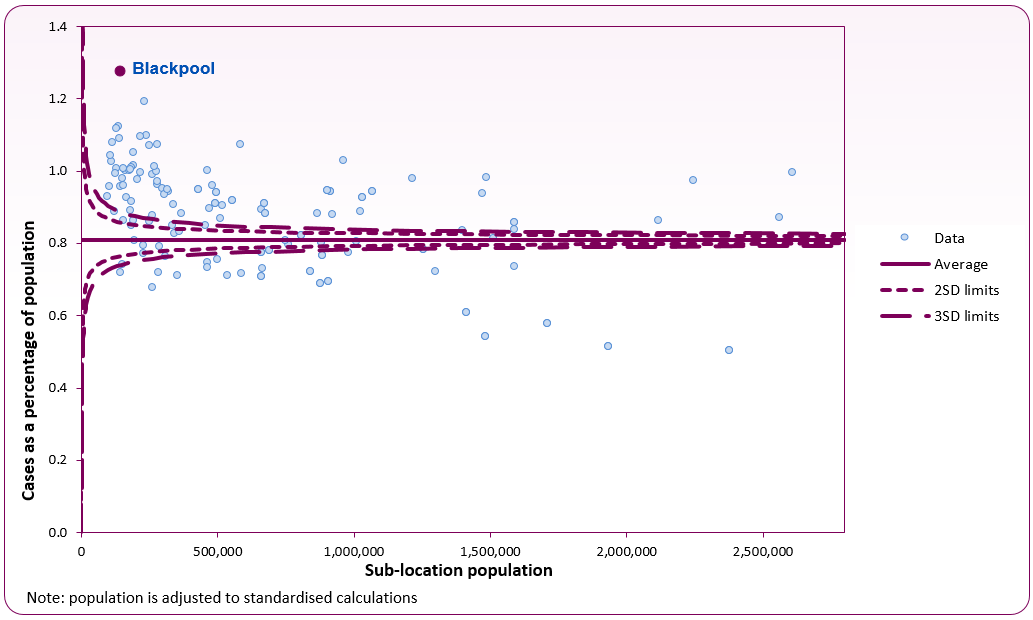Epilepsy
Last Modified 13/03/2025 10:23:19
Share this page
Introduction
Epilepsy is a condition that affects the brain and causes repeated seizures, also known as fits. Epilepsy affects more than 500,000 people in the UK. This means almost 1 in 100 people has the condition. Epilepsy usually begins during childhood, although it can start at any age.
Facts and figures
Prevalence of epilepsy
For further information regarding the source of NHS Quality and Outcomes Framework (QOF) prevalence data and its limitations please see the note on QOF Data.
In 2023/24, 1,845 people aged 18 and over in the Blackpool ICB sub-location (formerly NHS Blackpool CCG) were identified as living with epilepsy.1
This equates to 1.3%, which is significantly higher than England (0.8%), although the trend shows a relatively static position, with the last small increase from 1.1% in 2014/15.
Blackpool's sub-location is shown as a purple marker in figure 1, with all others shown in blue. The funnel chart shows Blackpool's epilepsy prevalence is the highest of all areas
Figure 1 - epilepsy prevalence (18+) funnel plot analysis at sub-location level (2023/24 QOF)
 Source: National General Practice Profiles - OHID
Source: National General Practice Profiles - OHID
National and local strategies (current best practice)
-
- Epilepsies in children, young people and adults (National Institute for Health and Care Excellence, April 2022)
Risk factors
In most cases, the condition is described as "idiopathic epilepsy", meaning that the cause of epilepsy is not fully understood. It is thought that attacks are caused by abnormalities in neurotransmitters, chemicals which regulate electrical impulses in the brain. Part of the cause may be genetic, and in some rare cases the exact gene defect is well understood.
Sometimes epilepsy is caused by a specific illness or problem relating to the brain. This kind of epilepsy is termed "symptomatic" and is commoner in older life. Examples of health problems that may cause this kind of epilepsy include:
-
- Developmental problems that started in childhood
- Head injury
- Strokes
- Tumours
- Encephalitis (inflammation of the brain)
- Chronic alcohol abuse2
[1] National General Practice Profiles
[2] Alcohol, drugs and epilepsy | Epilepsy Society